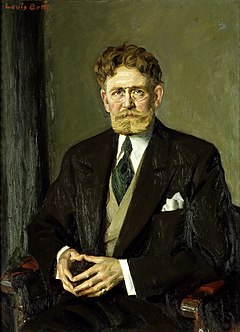J. Hamilton Lewis
| J. Hamilton Lewis | |
|---|---|
 |
|
| 1st and 5th Senate Majority Whip | |
|
In office March 4, 1933 – April 9, 1939 |
|
| Preceded by | Simeon D. Fess |
| Succeeded by | Sherman Minton |
|
In office March 4, 1913 – March 3, 1919 |
|
| Preceded by | office created |
| Succeeded by | Charles Curtis |
|
United States Senator from Illinois |
|
|
In office March 26, 1913 – March 3, 1919 |
|
| Preceded by | Shelby Moore Cullom |
| Succeeded by | Joseph M. McCormick |
|
In office March 4, 1931 – April 9, 1939 |
|
| Preceded by | Charles S. Deneen |
| Succeeded by | James M. Slattery |
| Member of the U.S. House of Representatives from Washington's at-large district |
|
|
In office March 4, 1897 – March 3, 1899 |
|
| Preceded by | William H. Doolittle |
| Succeeded by | Francis W. Cushman |
| Personal details | |
| Born |
James Hamilton Lewis May 18, 1863 Danville, Virginia |
| Died | April 9, 1939 (aged 75) Washington, D.C. |
| Political party | Democratic |
| Alma mater | University of Virginia |
| Profession | Lawyer |
James Hamilton Lewis (May 18, 1863 – April 9, 1939) was the first Senator to hold the title of Whip in the United States Senate. Lewis was born in Danville, Virginia, and also grew up in Augusta, Georgia. He was educated at the University of Virginia and studied law in Savannah, Georgia before he served in the Spanish–American War.
Lewis was one of a very few politicians to represent two states in the United States Congress. Lewis represented Washington (1897–1899) in the United States House of Representatives as a Democrat, and went on to serve Illinois (1913–1919, 1931–1939) in the United States Senate as a member of the Democratic Party. Lewis served as Majority Whip from 1913 until 1919. At some point in his congressional career, he became known to colleagues as "Ham".
A close ally of President Woodrow Wilson, Lewis was a leader in getting much of Wilson's "New Freedom" legislation passed. Upon his defeat for reelection in '18, Lewis was offered the ambassadorship to Belgium by the President, but he declined and returned private legal practice in Chicago, Illinois. He eventually became a partner in the newly named Lewis, Adler, Lederer & Kahn (now known as Arnstein & Lehr, LLP) where he remained until he began his campaign for return to the United States Senate.
He would hold the Majority Whip position again from 1933 until his death in 1939. He was defeated for reelection to the Senate in 1918, but regained his seat in the election in 1930. He ran unsuccessfully for governor of Illinois in 1908 and 1920, and continued to serve as Minority Whip in the Senate during the Depression and the New Deal era. Lewis won his last Senate election in 1936, and died in office in 1939.
...
Wikipedia
